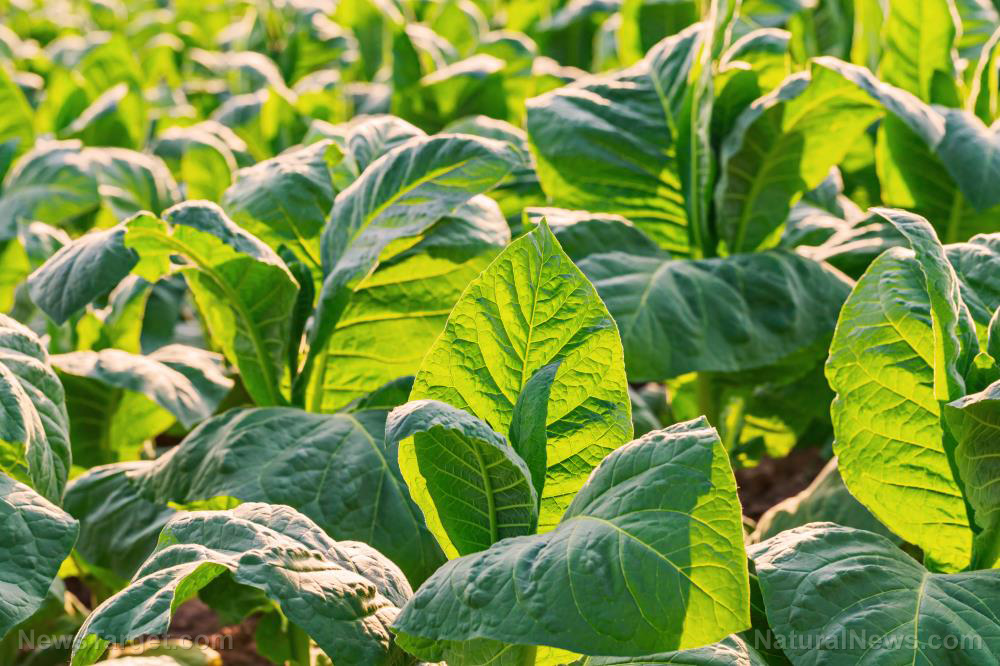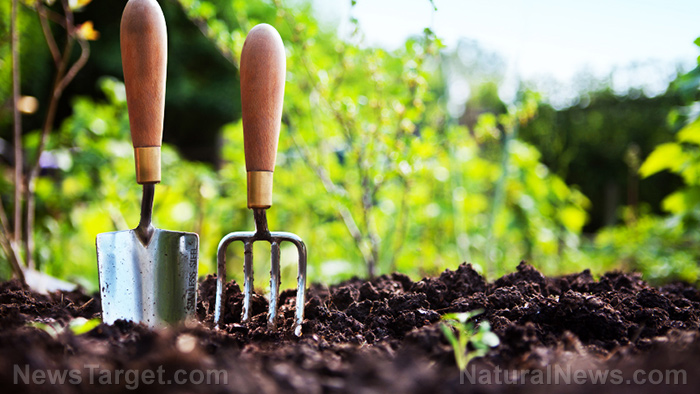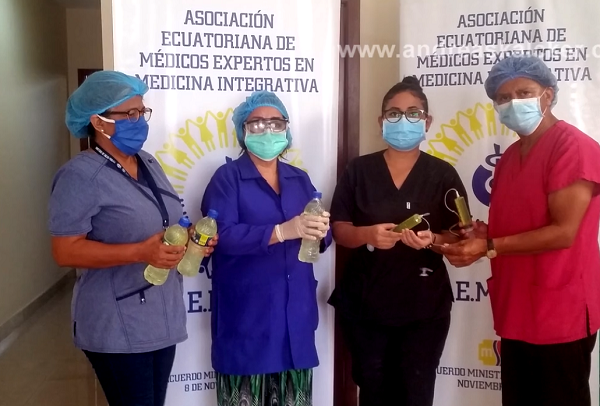
Brush and floss
Brush and floss every day (and twice a day if possible) to reduce odorous bacteria in your mouth. Flossing removes bits of food caught between teeth, which can cause bacterial growth (and halitosis) when ignored. Replace your toothbrush every two to three months so the bristles do not weaken over time and clean your teeth less effectively. (Related: Prevent halitosis with good oral hygiene and these natural remedies.)
Learn about the signs of disease your teeth can reveal.
Clean your tongue regularly
After brushing your teeth, use your toothbrush to brush your tongue as well, or invest in a tongue scraper as one of the more high-tech bad breath remedies. Your tongue can be a breeding ground for smelly bacteria in your mouth and cleaning it is an often overlooked part of oral hygiene.
Find out what your tongue can reveal about your health.
Hydrate
A common cause of halitosis is a dry mouth because the slowing of saliva production encourages the growth of bacteria that cause your breath to smell. Alleviate dry mouth by hydrating often, especially when you wake up or during and after exercising, because these are the times dry mouth is most likely to occur.
Watch what you eat
Avoid foods that are highly acidic or high in fructose, as both encourage bacteria production. For a quick and easy snack that helps curb bad breath, reach for an apple or some yogurt. Apples are high in fiber and contain the heteropolysaccharide pectin, which stimulates saliva production, while the active cultures in yogurt can help reduce bacteria in the mouth.
Drink green tea
A study published in the Journal of Periodontal Research showed that green tea extract and its major constituent, epigallocatechin-3-gallate (EGCG) triggers cells in the gums to release an antimicrobial chemical. This chemical targets Porphyromonas gingivalis, the bacteria that contribute to gum disease and halitosis.
Eat fennel seeds
According to a study published in the International Journal of Pharmaceutical Sciences and Research, chewing on a handful of anise or fennel seeds can help with bad breath because they have antiseptic properties that limit bacterial growth.
In parts of India, roasted fennel seeds are still used as "mukhwas" or mouth fresheners to cleanse after-dinner breath because they contain aromatic oils that help freshen breath.
Suck on a cinnamon stick
Like cloves and fennel seeds, cinnamon is an effective antiseptic. Plus, its essential oil can kill germs and leave your mouth smelling nice.
Research published in the journal Archives in Oral Biology found that cinnamon essential oil can protect against bad breath-related bacteria. Researchers discovered that compounds in cinnamon can destroy strains of bacteria that cause halitosis without any toxic effects.
Another study published in BMC Complementary and Alternative Medicine also reported that true cinnamon is an excellent antifungal agent that can kill off strains of oral candida.
Eat oranges
Oranges are a rich source of citric acid, which has been shown to increase saliva production. Increased saliva helps maintain homeostasis in your oral cavity and keeps your oral mucosa healthy.
Chew on a fruit rind
Rinse off a lemon or orange rind before popping it in your mouth to chew on it. It will give your breath a burst of freshness and the citric acid will encourage glands to produce more saliva.
Munch on green herbs
A study published in the journal Ancient Science of Life found that green herbs that are high in chlorophyll – a plant pigment that neutralizes odors – contain compounds that can help reduce bad odor-causing bacteria and treat halitosis.
Try chewing on some fresh basil leaves, cilantro leaves, mint leaves or parsley after a meal to quickly freshen your breath.
Remove your dentures
If you wear dentures, remove them at night and clean them daily to prevent the buildup of odor-causing bacteria.
Things your bad breath is trying to tell you
Dry mouth. Saliva is your mouth's natural bacteria killer and when there isn't enough of it, bacteria reproduce and feed freely, releasing those pungent sulfur compounds that cause bad breath.
To prevent dry mouth, experts recommend drinking more water during the day and limiting your consumption of caffeine and alcohol, which are dehydrating. Chewing sugar-free gum for 15 to 20 minutes or an apple with its skin on can help activate your salivary glands.
Infected tonsils. Tonsillitis (inflamed tonsils) and even tonsil stones – calcium deposits created by food particles and dead bacteria – can cause bad breath. Gargle with warm water and half a teaspoon of salt to help dislodge tonsil stones.
Plaque and tartar. Missed dentist appointments can lead to a buildup of bacteria that mixes with sugars and starches, creating a film called plaque. If not removed, plaque can harden into tartar, which can collect between the gums and teeth and lead not only to bad breath but also to infection, loss of tissue and bone, and, eventually, tooth loss.
Tongue bacteria. Eighty to 90 percent of bad breath is caused by bacteria living on the tongue, which feast on food particles stuck between the teeth and in the grooves and crevices of the tongue. These bacteria excrete sulfur compounds as they digest, which let off a foul smell. You already know the solution to this: brush and floss every day.
Visit OralHealth.news for more stories like this.
Watch the following video to learn about Bad breath natural recovery.
This video is from the NutriMedical Report channel on Brighteon.com.
More related stories:
Stop halitosis in its tracks with these 8 natural remedies for bad breath.
Saponin derived from quinoa shows antibacterial effects against halitosis-related bacteria.
Five natural ways to cure bad breath through diet.
Sources include:
BMCComplementMedTherapies.BiomedCentral.com
Please contact us for more information.






















